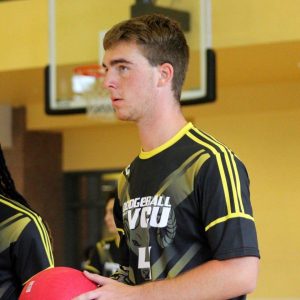
February’s Baller of the Month was all but decided four days into the month when JMU’s BEAST VI tournament concluded. It was clearly time to recognize the efforts of Virginia Commonwealth’s team, more specifically, their captain: Hunter Ford.
I had the chance to have a discussion with Hunter, and it was a very telling one. We chat about a variety of topics, ranging from his role on VCU’s team, to his thoughts on the ranking system, to his talent as a ‘Twitter Jockey’, and much more. Congratulation Hunter on being VCU’s first ever BOTM. Here is my talk with the leader for VCU Dodgeball:
Kevin Bailey: First off, congratulations on winning Baller of the Month. To start, can you give us some insight into what your role is on the VCU Dodgeball Team, and some brief background of how you earned your current position in the club?
Hunter Ford: Currently with the team I serve as both the President and Captain. I knew pretty early on when I first joined the team as a freshman that I wanted to be in a leadership position. Last year I served as the Treasurer and as an unofficial Assistant Captain. After our season last year I was fortunate enough to be elected President by my teammates.
KB: So, in my opinion, the biggest day in VCU Dodgeball history was at BEAST VI. You guys took MSU to overtime, then earned wins against Ohio State and Kentucky. Take us through that day, and what its significance was for your program.
HF: Going into the day, I actually had a really great feeling about how we were going to perform. When I talked with one of my Assistant Captains, Torao Ota, during our breakfast at Chick-fil-a I told him I just had a feeling we would turn some heads. Then while talking to my friend Marc Antosz of JMU, I said I felt confident we could beat MSU, but it would be very tough if we had to go to overtime against them. Wish I kept my mouth shut on that part…but I digress. I knew the team was pretty upset with the loss, but I was very proud of the way we rallied back to pull off the upset against Ohio State. In regards to the Kentucky game, I knew we had the advantage of less travel and one less game than them on the day at that point. Kentucky has a VERY talented group, and I really like their team a lot, which made me want to win even more. I ended up having a very strong overtime period against them which helped us get the win, and turning around to see the team getting excited and celebrating was certainly a great experience.
One thing I told the team right at the beginning of the day was that we were the underdogs, but that many teams from across the country were rooting for us. That tournament wasn’t just about us, it was about all the teams that have felt historically undervalued or underappreciated by other member teams. It was about our predecessors that helped form our awesome organization, and gave us the opportunity to come together. It was about showing everyone across the country that we meant business and we were here to stay. There haven’t been many moments as significant as that one, and it is a testament to the hard work and dedication by the people I have the privilege to call my friends and teammates.
KB: VCU has been on the upswing for a while here. During your time on the team, what was the lowest point? And what did you guys do to get to where you are today?
HF: Thankfully, I wasn’t at VCU for what many would consider our lowest point. I probably wouldn’t have had the mental toughness of guys like Shadeed Drakeford and Adam Hallers who had to essentially start and revive our club from scratch.
But I do have an interesting perspective to give that I want a lot of young players to know.
From my personal perspective, the lowest point for myself was actually at the very start of my career. When I first joined the team, we weren’t that strong. We were prepping for what was my very first tournament at the University of Maryland, and on a 16-player team, I was not in our starting 15. I wasn’t good enough to start on a team that was 0-17 for the two years prior to me joining. Things have changed since then, but really it has always been about working hard to improve. We never have been, and probably never will be the most talented team. But we come ready to work three nights a week during our season, and everyone has worked on their game in one way or another during the summer months as well. There have been times where I have definitely been tough on people as a leader, but it’s because I want to make everyone better, and everyone on the team I believe responds well to a challenge. For that, I am very grateful I am around people who want to work to get better, and that is why we are seeing the fruits of our labor finally pay off.
KB: I’m not sure how aware you are of this, but you have a bit of a reputation in this league now. After making a rule proposal on changing the ranking system, some people took your comments and made the assumption that you are only trying to improve the position of weaker teams, some maybe undeserving. Do you have a rebuttal for that? Here is your chance to really tell the league what your thoughts are on the ranking system. What changes would you make, and why in your opinion, would that be the fair and reasonable solution?
HF: Really my biggest reason for making the post that I did was because I think we always need to discuss how we can make our league better, rankings being part of that equation. I don’t even necessarily feel that a complete hard reset as I suggested is the best solution, but it gets people talking. I do believe [the current system] does help buffer teams that have been historically strong, and hinders teams that were historically weak.
Speaking on behalf of my team, last season going into Nationals I think we were 16th overall team, and moved up to the 12th seed for Sunday play. However, when we did an analysis to see what the rankings would look like if each team reset every year, we would’ve been 13th overall going into Nationals. That 3 seed difference is HUGE in what has historically been a top heavy league.
Unfortunately, I don’t have all the answers. I think that there’s definitely a level of common sense we should apply when coming up with rankings. That being said, the use of numbers and data does take away the subjectivity that would come with something like a poll. Ultimately, what we should decide as a league is would we rather have a system that determines seeding/is a pure prediction based model, or do we want it to be a separate thing that rewards teams for their success. In college football we’ve seen both sides in the BCS method, and the College Football Playoff. The first being a computer model, while the second is decided by individuals. Each has its own pros and cons, but like I said, I just want to generate discussion because someone out there may have a stroke of genius and puts something in place that makes us better.
KB: As many people know, you are a member of the NCDA Content Team. Can you give us a little bit of insight into what your goals are as a member of that group?
HF: For me, the goal has always been to produce meaningful work that others can appreciate. Whether it is writing previews, recaps, the team spotlight pieces, I want to make something that people can show off to their friends and make them feel important. I also have a desire to make sure teams that don’t as frequently get coverage get the recognition that they earn.
KB: Along with being on the content team, you are arguably the most talented ‘Twitter Jockey’ in NCDA history. How does it feel to have that title? Do you expect to make the (not yet created) NCDA Hall of Fame based on your social media prowess? And, on a more serious note, what advice do you have for other teams, when it comes to using social media to promote your club in a positive way?
HF: Ha. I say it’s a fitting title that has been earned this year. In regards to being an NCDA HOF candidate, I would prefer to be considered as a player/contributor, but if it’s as the league’s “Twitter Jockey” then I guess I’ll have to settle.
I do think that social media is something powerful that we can take for granted sometimes. Using a social media platform is a great way to gain attention around campus, but also attention from local businesses. There’s a lot of businesses near college campuses that are trying to expand into that market, and by being able to promote for them, you can gain a lot of interest. I can’t count how many people have asked me about the Buffalo Wild Wings sponsorship, and that is just a little bit about the power of social media.
I also think it’s just a fun way to interact with other teams. I feel like I was able to start a trend where now teams are communicating with each other through social media like Twitter which adds a little bit more fuel to the fire for rivalry games, just like in other major sports. We’ve definitely seen a trend of more teams being active on Twitter since I started that social media campaign, so here’s to hoping that trend continues.
KB: What team is your favorite to play against?
HF: This is really a tough question because there are a lot of teams I really enjoy playing. Towson is probably at the top of that list because I have a ton of friends that play for them, and they are a competitive group which makes the games exciting.
KB: What is your single favorite on court moment as a player for VCU? Also, what is the single most memorable off court moment?
HF: I have two tied in my head but for the sake of time I’ll stick to one. One of my favorite on court moments came in our overtime win over Kent State at Akron’s Pink Out tournament. At the time, Kent was the #5 team in the country, and we were playing them basically in their backyard, so I really wanted to get that win badly. Getting our team’s first ever Top 5 win was an amazing feeling, and to do it in OT while getting the game clinching kill was big. It also made it better because I know how good of a team they can be, and beating any high level opponent feels great.
The most memorable off court moment was probably just going to my first ever Nationals at Western Kentucky. I like taking road-trips, and there’s definitely a lot of bonding you can do on a 13-hour trip. Also made it that much more special that it was our first ever Nationals appearance in program history.
KB: You know how people ask, ‘if you could have dinner with any person dead or alive who would it be’? I’m gonna give you that question… except you are choosing from all current and former NCDA players. Who would you choose, and why? Choose wisely!
HF: Well I hope your wallet is ready. It’s you Kevin, and mainly because I want to be able to sit down and discuss what it takes to succeed and get your team and yourself to the highest level possible. I think a lot of people take for granted the amount of work you put in for your team to not just inherit the success you got from Mark, but also make GVSU better.
Also, you actually have a big boy job now so I know you can foot the bill.
KB: Sounds like a plan to me. I’ll be the Yoda to your Luke Skywalker. You will learn all the ways of the force from me… Also, calm down about me footing the bill, otherwise we’re going somewhere cheap. Anyway: It is no secret that you are passionate about this sport. Give me a very brief prediction on what College Dodgeball will look like in 10 years? How many schools? Who will win the Natty? What TV channels are we on? Is MDC still getting too much love from the media? What is your vision of the league in 10 years?
HF: I think we definitely have a very fast growing sport. I’ve seen it in my brief time in the league where there were only 22 teams that competed, to now 31(!) that are playing competitively. From a regional standpoint, we should see our sport starting to move more towards the southern states, and bring that geographic center down from Ohio to a little bit more in the middle of the country. I think some big name schools that will eventually join include West Virginia, Tennessee, and South Carolina. I know Jake [Leski] is working extremely hard to get the name out there for our league, and his efforts will continue to pay off.
10 years from now I believe we will be a little over 60 teams total give or take, and really that’s just simple math. The NCDA has existed since 2005, we have 31 teams now, so in another 10 years, it makes sense for it to double.
In terms of which teams will thrive, that’s obviously tougher. We are in the early stages of our league where it is dominated by a select few, just like how Princeton, Yale, and Harvard dominated college football for the first 20 years. I believe we will see a trend where it will generally start to be dominated by very brand name schools that can draw in tons of people and make it that much easier to find talent. So if you want an exact team, I’ll settle on Ohio State.
KB: Well, now that we have completed the longest BOTM interview of all time, do you have any final thoughts? Maybe a bold prediction for Nationals 2017?
HF: I see what you’re doing there. But I do have three important points I wanted to address.
1. For the new teams that may feel like giving up because things aren’t looking strong now, stay determined. In VCU’s first three seasons in the NCDA we went a combined 1-26. Now in our fifth season, as I’m writing this, we are the #9 team in the country. Just because things don’t pay off instantly, don’t let that deter you, whether in dodgeball or life.
2. For the younger players out there who might be hurt by a lack of attention or playing time, again, be patient. There will be a time where your number will be called upon in an important match. Work hard, improve, and be prepared for that moment.
3. This can be viewed as a team award as much as anything else. I wouldn’t have the opportunity to be VCU’s first ever BOTM if I didn’t have the support and effort behind me. Thank you so much to the VCU Dodgeball program that has given my college experience that much more meaning.
Go Rams






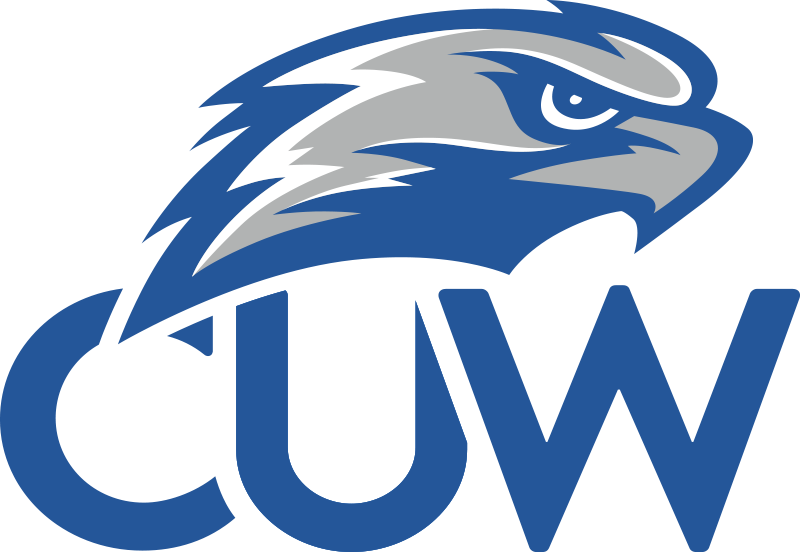
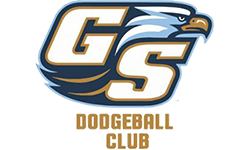


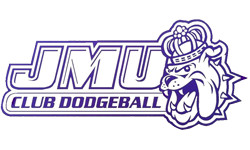






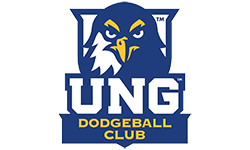
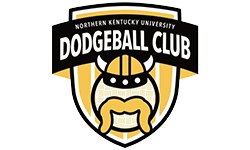







Welcome to the club bud. Well deserved.
About time.